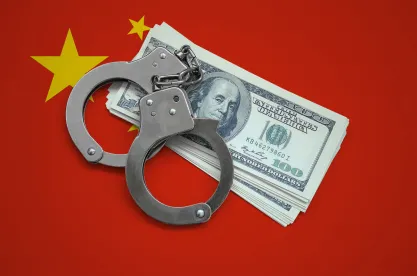On March 23, 2023, the Wuxi Intermediate People’s Court (无锡市中级人民法院) upheld a lower court’s sentence of 4.5 years for Zhao XX as well as a fine of 30,000 RMB and restitution of 280,000 RMB. Zhao used the “trademark document express delivery” scam to courier copies of official trademark approval announcements to trademark applicants requiring the payment of 25 RMB upon receipt.
From April to May 2020, Zhao would log onto the website of the Trademark Office of the China National Intellectual Property Administration (CNIPA) and download trademark approval announcements. Zhao then signed distribution and collection agreements with courier companies SF Express and JD Logistics and then sent the downloaded copies to the trademark applicants with “your company’s registered trademark approval, this will not be resent; to avoid missing important information, please be to sign for” indicated on the envelope. Payment of 25RMB was to be collected by the courier companies upon acceptance by the applicant.
As of June 22, 2020, Zhao had used the above means to defraud victim applicants across China of a total of more than 280,000 RMB.
The court of first instance sentenced the defendant Zhao to four years and six months in prison for fraud and fined him 30,000 RMB ; and ordered the defendant Zhao to restitute more than 280,000 RMB of illegal gains.
The defendant Zhao filed an appeal, and the Wuxi Intermediate People’s Court ruled to reject the appeal and uphold the original judgment.
The Judge stated:
In the “trademark document courier service” fraud scheme, a lawbreaker makes use of the fact that the trademark applicant is not familiar with the trademark registration business and is defrauded by the latter because the amount is low and the victim is slow to report the fraud. Although the means of fraud are not very skillful, some people are tricked and deceived. To that end, the judge issued four reminders:
First, with regard to the fraud of “delivery of trademark documents through courier services”, the Trademark Office of the State Intellectual Property Office has provided a reminder. On April 23, 2020, the Trademark Office of the CNIPA issued the Notice on Taking Precautions against Defrauding Payment of Postal Fees by Mailing Paper Trademark Notices on the official website, declaring that, “The trademark announcements of this Office since May 2016 have been made by electronic bulletin. No paper trademark announcements will be sent to the outside world. The official letters sent by this Office to applicants need not pay any postal fees.”
Second, the China Trademark Network provides free trademark registration information. A trademark applicant may log on the China Trademark Website and click on the “Trademark Inquiries” column to conduct trademark status inquiries, trademark comprehensive inquiries, and trademark announcement inquiries, among others. It was from these channels that the lawbreakers of such frauds learned of the trademark announcements. Therefore, a trademark applicant shall actively know the business process of trademark registration so as to avoid falling into the trap set by lawbreakers.
Third, only China Post can deliver official documents. In accordance with Article 55 of the Postal Law of the People’s Republic of China, “express delivery enterprises shall not engage in the correspondence delivery business exclusively operated by postal enterprises, and shall not deliver official documents of state organs.” Therefore, all official documents of state organs delivered through non-postal channels should be rejected!
Fourth, trademark applicants should report to the police in time after being cheated. No matter how minimal the defrauded amount is, you should immediately report the case to the public security organ to provide the public security organ with evidence of the crime. In this case, the defendant Zhao’s amount involved in the case was only 25 yuan per document, but he used this method to defraud the victim units across the country of more than 280,000 RMB in less than three months. Therefore, the victim should actively protect his own rights and interests through legal means, cooperate with the public security organs to conduct investigations, and prevent criminals from continuing to defraud trademark applicants.
The original announcement is available here (Chinese only).



 />i
/>i
